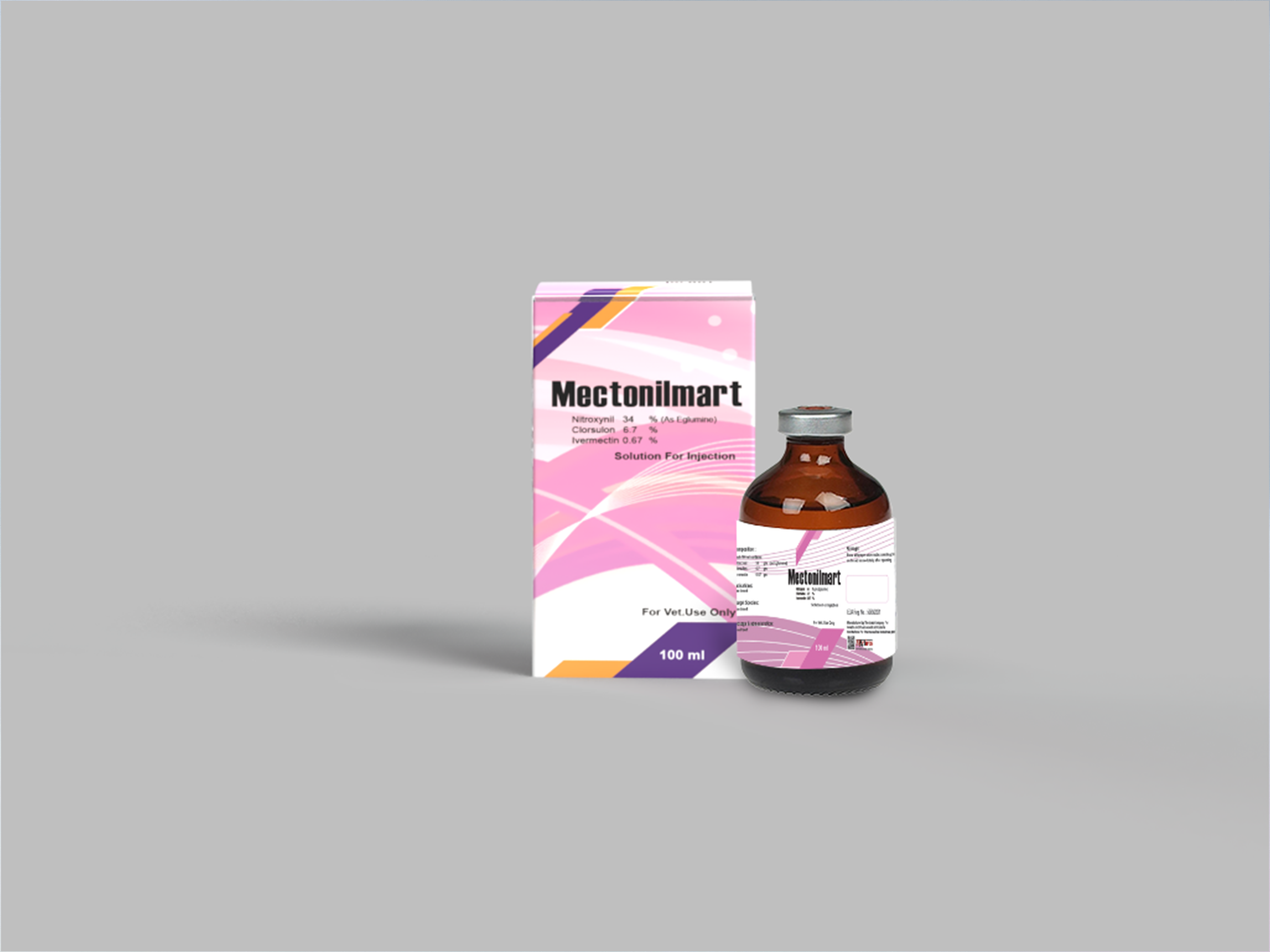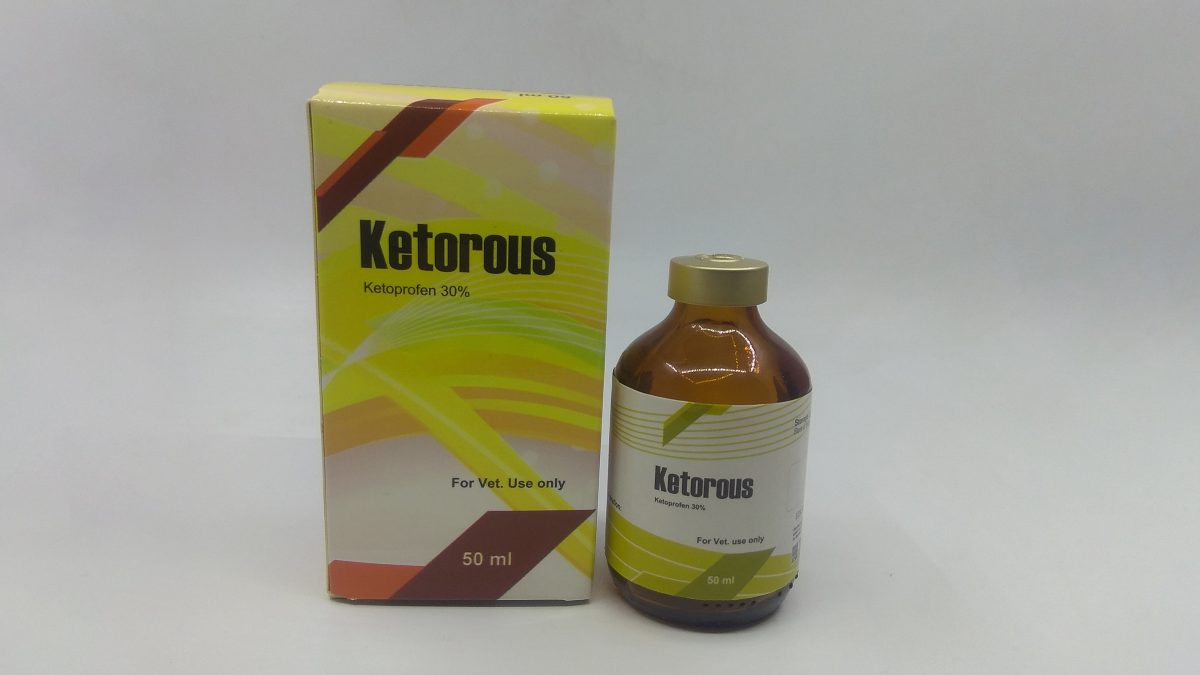
Mectonilmart

Polvbiotic
For veterinary use only
Composition:
Each 1 ml contains:
Ketoprofen 300 mg
Properties:
Ketoprofen is a non-steroidal anti-inflammatory drug belonging to the arylpropionic acid group. Ketoprofen inhibits the biosynthesis of prostaglandins (PGE2 & PGF2α) without affecting the ratio of PEG2/PGF2α & thromboxanes. This mechanism of action results in its anti-inflammatory, antipyretic & analgesic activity. These properties are also attributed to its inhibiting effect on bradykinin & superoxide anions together with its stabilizing action on lysosomal membranes. The anti inflammatory effect is enhanced by the conversion of the ( R )- enantiomer to (S)- enantiomer. It is known that the (S)-enantiomer supports the anti-inflammatory effect of ketoprofen. Following oral administration, ketoprofen is readily absorbed & binds strongly to plasma proteins. Ketoprofen is metabolized in the liver & converted into a carbonil-reduced derivation, the RP69400 metabolite. It is excreted primarily through the kidneys &, to a lesser extent, in the faeces.
Indications:
Treatment for the reduction of pyrexia and dyspnoea associated with respiratory disease in combination with appropriate anti-infective therapy.
treatment of joint inflammatory diseases in chickens.
Target species:
Chickens, Cattle and pigs for fattening.
Dosage & Route of administration:
Taken orally via drinking water
• Fattening Cattle: 1 ml of product / 100 kg b.wt. in drinking water
• Fattening Pigs: 0.5 – 1 ml of product / 100 kg b.wt. in drinking water
• Chikens: 0.66 ml of product / 100 kg b.wt. in drinking water
Treatment should be given for one day. It can be continued for another 1-2 days after a risk/benefit assessment by the responsible veterinarian.
Warning & precaution:
• Water intake of treated animals should be monitored to ensure adequate intake.
Individual animal medication, preferably by injection, will be required if daily water intake is insufficient.
• As ketoprofen may provoke gastrointestinal ulcerations, the use is not
recommended in cases of PMWS (post-weaning multisystemic wasting syndrome) because ulcers are already frequently associated with this pathology.
• To reduce the risk of adverse reaction do not exceed the recommended dose or duration of treatment.
• When administrating to very young animals it is necessary to adjust the dose accurately as well as to perform a close clinical follow up.
Contra-indications:
• Do not use in pregnant sows.
• Do not administer to suckling calves.
• Do not administer to fasting animals or animals with limited access to feed.
• Do not use in animals where there is the possibility of gastrointestinal alterations, ulceration or bleeding in order not to aggravate their situation.
• Do not use in dehydrated or hypovolemic or hypotensive animal due to the potential risk of increased renal toxicity.
• Do not administer to swine fattened at extensive or semi-extensive production farms.
• Do not use in animals suffering from cardiac, hepatic, or renal disease.
• Do not use where there is evidence of blood dyscrasia.
• Do not use in animals with a history of hypersensitivity to ketoprofen, aspirin or any of the excipients.
Side effects:
• Overdose with NSAIDS can lead to gastro-intestinal ulceration, loss of proteins, hepatic & renal impairment.
• Early signs of toxicity include loss of appetite & pasty faeces or diarrhoea.
Withdrawal time:
Meat & offal : 24 hours
Storage:
Store at temperature not exceeding 30°C
Packaging:
Carton Box containing Colorless glass (Type II) vial containing 50 ml solution closed with bromobutyl rubber stopper and non-re-usable aluminum closures with outer label and insert leaflet




